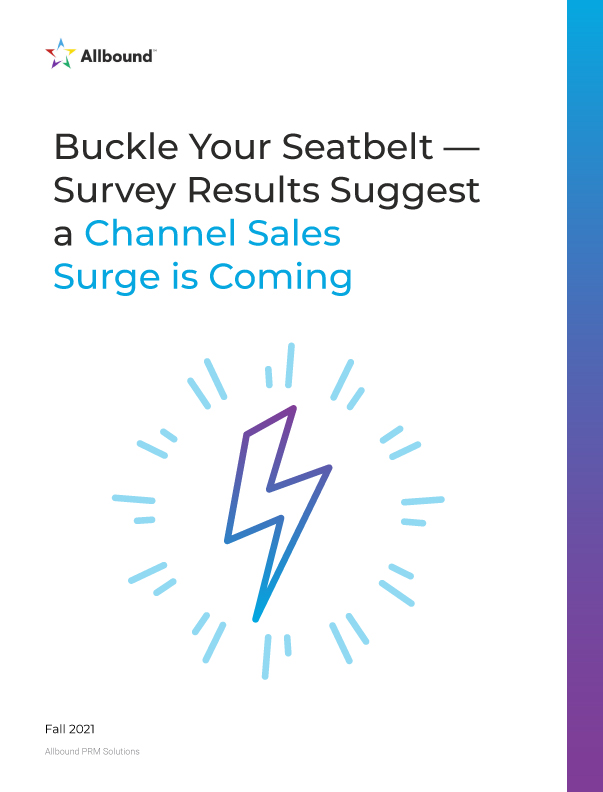Topics
Demand Gen Pros Need To Focus More Attention On B2B Marketplaces
As more B2B buyers’ journeys are including side-trips through digital marketplaces, demand gen professionals should be taking steps to engage customers and prospects in them. “Organizations will need to quickly figure out what will influence conversions and purchases in this emerging space,” stressed a recent ForresterNow article, Marketers: Make Sure B2B Marketplaces Are On Your Radar.
Indeed, a considerable share of B2B spending shifted to marketplaces as the COVID-19 pandemic accelerated and will continue to do so. “By 2024,” writes the article’s author, Lori Wizdo, Vice President, Principal Analyst, B2B Marketing at Forrester, “worldwide B2B marketplace sales could reach $3.6 trillion, up from an estimated $680 billion in 2018.”

Lori Wizdo, Vice President, Principal Analyst, B2B Marketing, Forrester
The projected sales statistics reflect a growing preference for B2B buyers to shop digitally. In a related blog, Wizdo wrote “The Forrester Analytics Business Technographics Priorities And Journey Survey, 2020, shows that only 38% of B2B purchase influencers say they make purchases primarily through an enterprise account rep. As the use of account reps dwindles, B2B buyers are flocking to manufacturers’ e-commerce sites and marketplaces to fill the void.”
Consequently, the number of B2B shopping sites is climbing. Citing Venture Scanner data from December 17, 2020, Wizdo reported that there are almost 230 B2B marketplaces spanning over 13 diverse industries, far more than there were five years ago.
Despite the willingness of B2B buyers to shop in marketplaces, digital shopping experiences “have been off the radar screen for B2B marketers, demand gen marketers, particularly,” she told CMR. “I find that a lot of the folks who are in demand gen marketing in B2B companies have come through an evolution process where it’s really all been about generating leads for salespeople, and supporting sales in their closing of business. But as marketplaces become more dominant and as more complicated technologies and products are sold through marketplaces, that dynamic is going to have to change.”
Understanding the role that marketplaces play in the buyer’s journey is critical, said Wizdo. For example, B2B buyers she interviewed said they use marketplaces as they do Google, often just to define options. “Then they may go to the vendor, the vendor’s website, and engage with a telesales person, or learn more about their digitally researched purchase on the vendor’s website.”
Enabling Buyer Decisions
Buyers are choosing to do more of their own research in digital venues, choosing to interact less with salespeople, Wizdo continued. “And the marketplace is just an effective vehicle to do that. Buyers are getting more comfortable making decisions based upon information they read, not just information they hear from people.”
The overall experience in a specific marketplace can help buyers make complicated purchasing decisions, said Wizdo. Industry or solution-specific marketplaces, for example, may provide more access to expertise through chatbots or other interactive options. “There may be more respect for the complexity of the decision or the value, or other intangible features that are non-commodity values that are part of a differentiated brand. Making careful decisions about which marketplaces in which participate in is important.”
Experienced B2B marketers clearly have the knowledge necessary to succeed in marketplaces, said Wizdo. “The skill sets are there. It’s just digital marketing.” But demand gen organizations will be required to craft unique marketplace strategies. As Wizdo noted in her ForresterNow article, marketers will need to “learn the unique vagaries of every marketplace…relinquishing control to the marketplace’s templated features and structures.” They will have to understand each marketplace’s role in their buyers’ journey to provide the best content and experience. And they’ll need a plan to ensure their marketplace offerings aren’t isolated from the wider marketing ecosystem.
“You’d better be always tracking how your buyer wants to buy,” stressed Wizdo. “Where are they going, and why are they going there? What are they getting out of that? Because buyers control the buying process way more than vendors control the selling process.”









